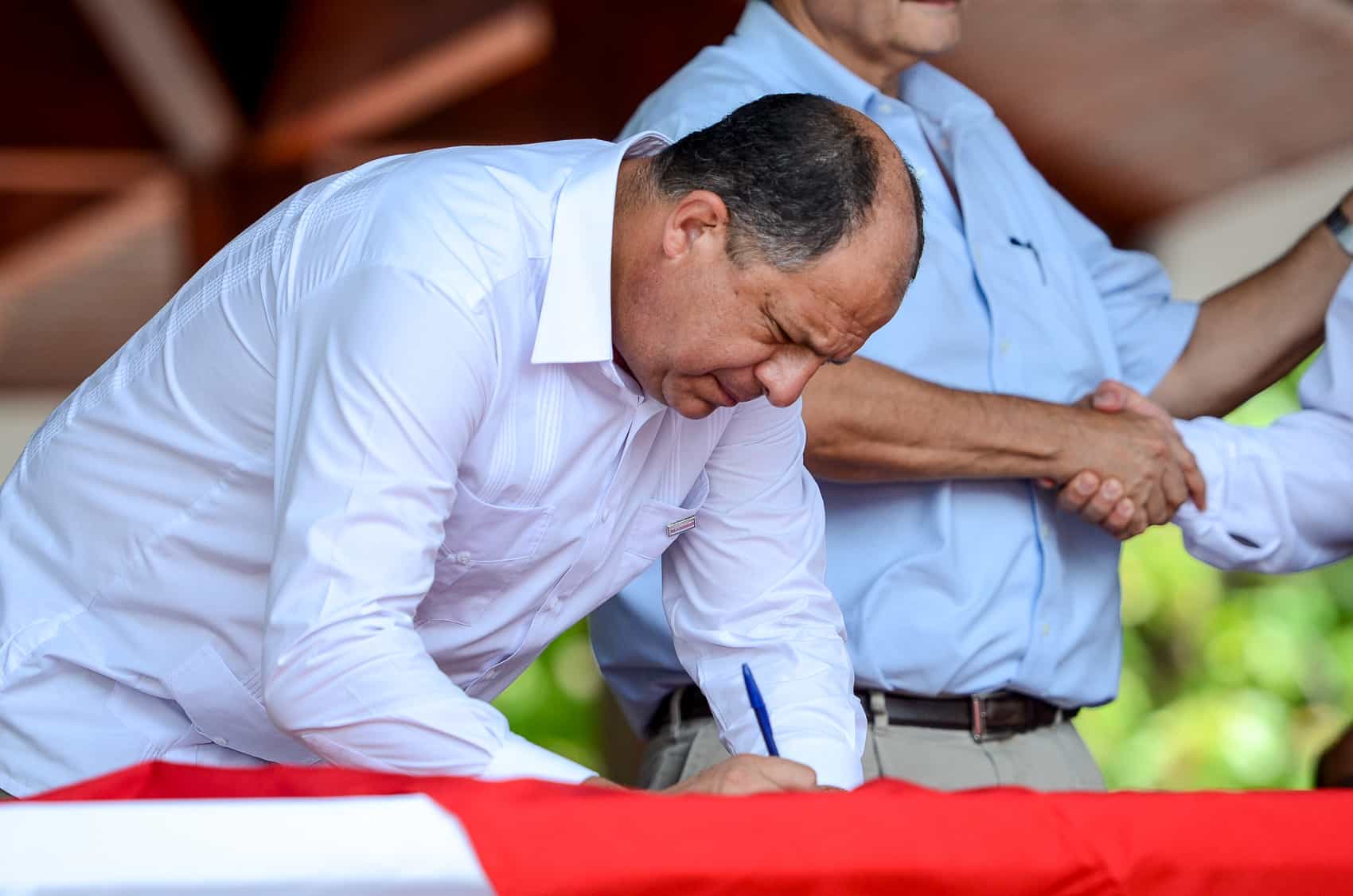President Luis Guillermo Solís extended the country’s ban on petroleum exploration and extraction until 2021 as well as adding guidelines for energy efficiency in government agencies.
Solís signed the bill on Friday, before attending the 190th anniversary festival of the annexation of the Partido de Nicoya. The extension continues a moratorium signed by former President Laura Chinchilla in 2011, which tasked the Environment Ministry (MINAE) with enforcing the ban. The original law cited Costa Ricans’ constitutional right to a healthy environment as its authority. The moratorium called for an updated cost-benefit analysis of petroleum extraction, citing risks like the 2010 BP oil disaster in the Gulf of Mexico. Chinchilla’s moratorium was set to expire in August.
Environment Minister Edgar Gutiérrez said the ministry also will now oversee a prohibition on government purchasing of equipment, lights and appliances that consume high amounts of electricity.
“It is the obligation of all the administration’s institutions to create and execute the Institutional Environmental Management Programs,” Guitérrez said, referring to government initiatives that aim to foster a healthier environment, cleaner energy and climate change mitigation.
Although Costa Rica does not extract petroleum, according to the International Energy Agency (IEA), the country still burns oil for electricity. In 2011, the most recent year available, the country generated 8.8 percent of its electricity from oil. Most of Costa Rica’s energy comes from renewable sources, but the country also must rely on hydrocarbons, particularly late into the dry season, when hydroelectricity production is at its lowest.
In the transport sector, gasoline prices have reached record highs in Costa Rica, with some politicians calling on the country to join Venezuela’s oil-sharing scheme Petrocaribe. Solís expressed reticence over that proposal at a press conference last week, saying that cheap gas is not a priority in his administration.






